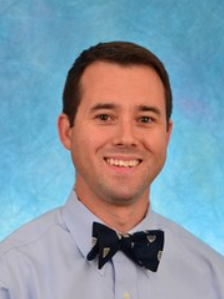
Dr. William Fischer from the division of pulmonary and critical care medicine has been featured in a New York Times article discussing the success of experimental treatments for Ebola in Central Africa, reporting that more than half of the patients who received experimental treatments for Ebola have survived in the Democratic Republic of the Congo.
Fischer, assistant professor of medicine in the division of pulmonary critical care medicine and member of the UNC Institute for Global Health and Infectious Diseases, explains that the death rate was 43 percent a month among patients who received experimental treatment. But if the count excluded Ebola patients who were within hours of death when they arrived at the hospital, the fatality rate would be 32 percent. In contrast, approximately 68 percent of Ebola patients in hospitals before the new treatments were approved, had died.
According to Fischer, treatments combined with a new vaccine suggest the possibility of revolutionizing efforts to turn back Ebola.
“I do think the tide is changing,” says Fischer in the article, while presenting data at the annual meeting of the American Society of Tropical Medicine and Hygiene. “I do think we’re in a new world.”
Four treatments are recognized as: remdesivir, an antiviral drug; mAb114, a human antibody cloned from a survivor of an outbreak years ago in Zaire; REGN-EB3, a cocktail of cloned human antibodies; and ZMapp, a cocktail of antibodies made from a blend of human and mouse proteins.
The article was published October 31 and can be accessed here: https://www.nytimes.com/2018/10/31/health/ebola-congo-treatments.html.